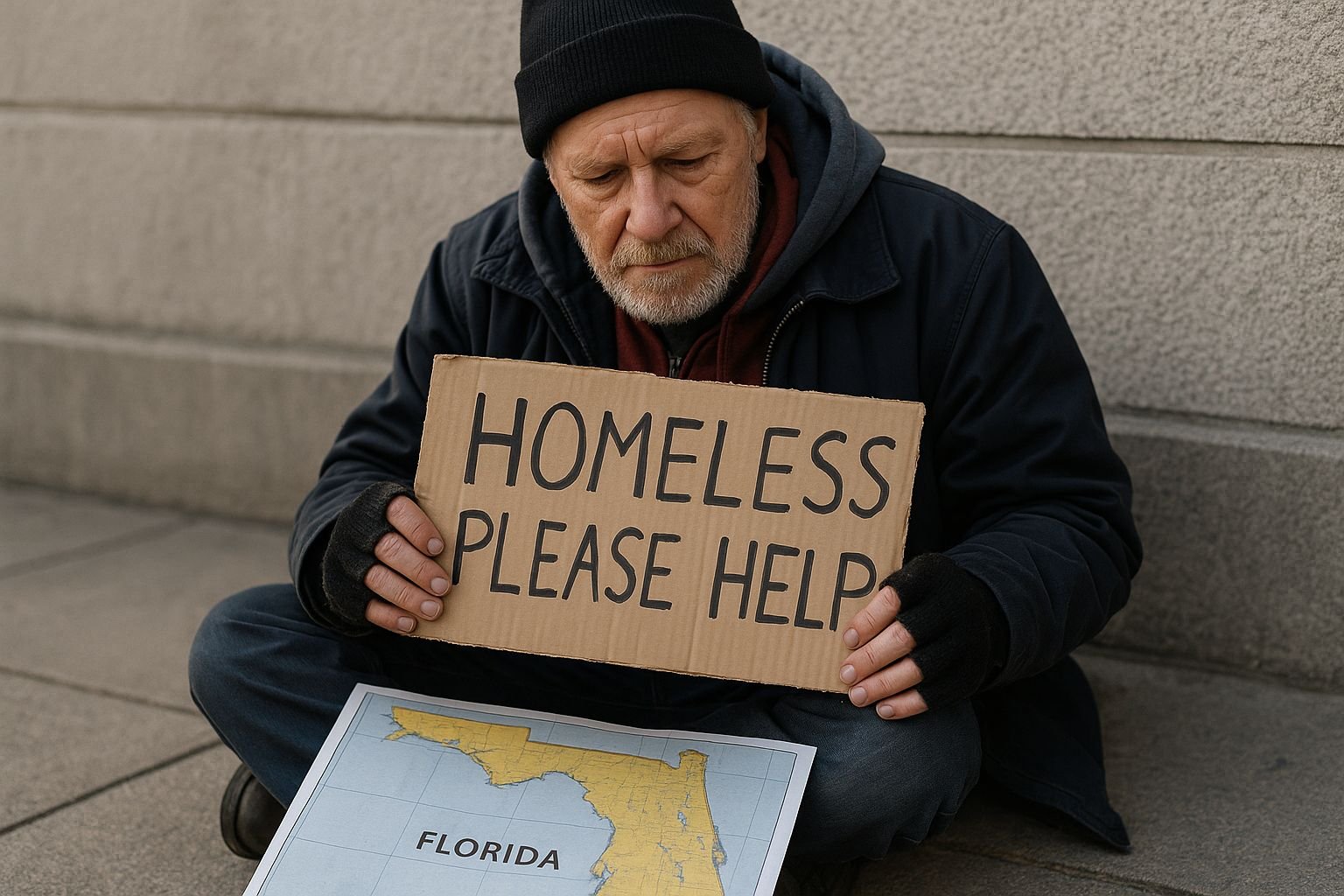What to do if you're homeless in Florida?
Struggling with homelessness in Florida can feel daunting, but there are support systems and programs in place to assist you in getting back on your feet and into permanent housing. This handbook offers a direct guide for homeless individuals in Florida, outlining where to find shelter, how to obtain necessary services, and what support networks are available. Regardless of whether you have just lost your home or have been without one for some time, being aware of your choices can prove to be the difference-maker.
Steps to Take Immediately
If you're homeless in Florida, the top priority is to find a place to stay that is safe. Emergency shelters throughout the state offer temporary housing, food, and basic hygiene materials. Some shelters also provide case management to assist you in creating a plan for your future.
Where to Get Shelter
Coalition for the Homeless of Central Florida: Providing shelter, food, and hygiene products to almost 500 men, women, and children every day, this agency also provides an Intake Center in Orlando to evaluate your needs and direct you to the right services.
Local Continuums of Care (CoC): Florida's counties have identified CoCs that oversee homeless services, such as emergency shelters, transitional housing, and permanent housing options. Reaching out to your county's CoC can link you with local services.
Youth Shelters: For youth aged 18-24, centers such as Covenant House Florida offer safe shelter, drop-in centers, education counseling, and workforce development programs.
Specialized Shelters: Certain shelters target specific groups of people, including veterans, women, families, or those with mental illness or substance abuse issues.
Accessing Support Services
In addition to shelter, many agencies provide intensive support services to assist you in becoming independent again:
Case Management: Social workers and case managers assist in developing individualized plans, linking you to job training, medical care, and housing programs.
Rapid Rehousing and Rental Assistance: There are programs to assist in moving individuals rapidly from shelters into permanent housing with financial assistance.
Healthcare and Mental Health Services: Medical care, counseling, and substance abuse treatment are accessible through a variety of nonprofits and government programs.
Food and Hygiene: Most shelters and outreach programs offer healthy meals, clothing, showers, and hygiene items to preserve health and dignity.
Navigating the System
The system may seem daunting, but here are a few suggestions to assist you:
Reach Out to Local Intake Centers Early: The sooner you call, the sooner you can be linked to services.
Store Essential Documents Safely: IDs, social security cards, and medical records are needed to access most services.
Be Willing to Work with Case Management: Trusting social workers may open up more doors.
Use Hotlines and Internet Resources: Call 2-1-1 or check websites of local homeless coalitions for current information.
Health and Safety
Being without stable housing can affect your physical and mental well-being. Be sure to:
Get medical care when necessary.
Make use of available hygiene facilities to minimize risk of illness.
Keep in touch with support networks.
If available, arrange for a cleaner or voluntary service to assist with maintaining living and personal space hygiene, which will enhance self-esteem and well-being.
Community and Long-Term Solutions
Various organizations tirelessly aim to bring an end to homelessness by:
Permanent Supportive Housing: Merging budget-friendly housing with supportive services for the chronically homeless.
Employment Programs: Facilitating the acquisition of skills and job placement.
Advocacy and Policy Work: Advocating for affordable housing construction and better social services.
Your path can be tough, but these local efforts work to make homelessness uncommon and short-lived.
How to Get Help Now
If you or someone you know is homeless in Florida, help is at hand:
Contact local shelters or coalitions listed by your county's Continuum of Care.
Call agencies such as the Coalition for the Homeless of Central Florida or Covenant House Florida for youth.
Call 2-1-1 for statewide help and referrals.
Visit our website for an extensive list of shelters and services specific to your area.
Homelessness in Florida is tough, but you don't have to do it alone. There are many shelters, support programs, and community organizations standing by to assist you in finding safety, stability, and a way to permanent housing. Making that first step by contacting local resources can transform your life.
For ongoing assistance, resources, and direction, visit our website. If you require short-term shelter or extensive support, we have the information to help you continue.
